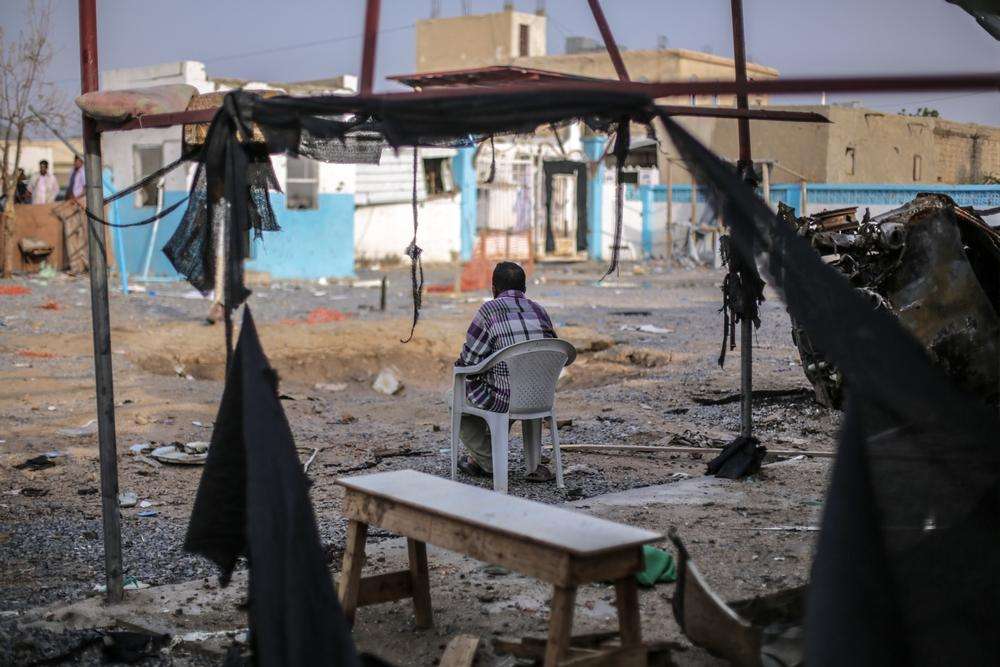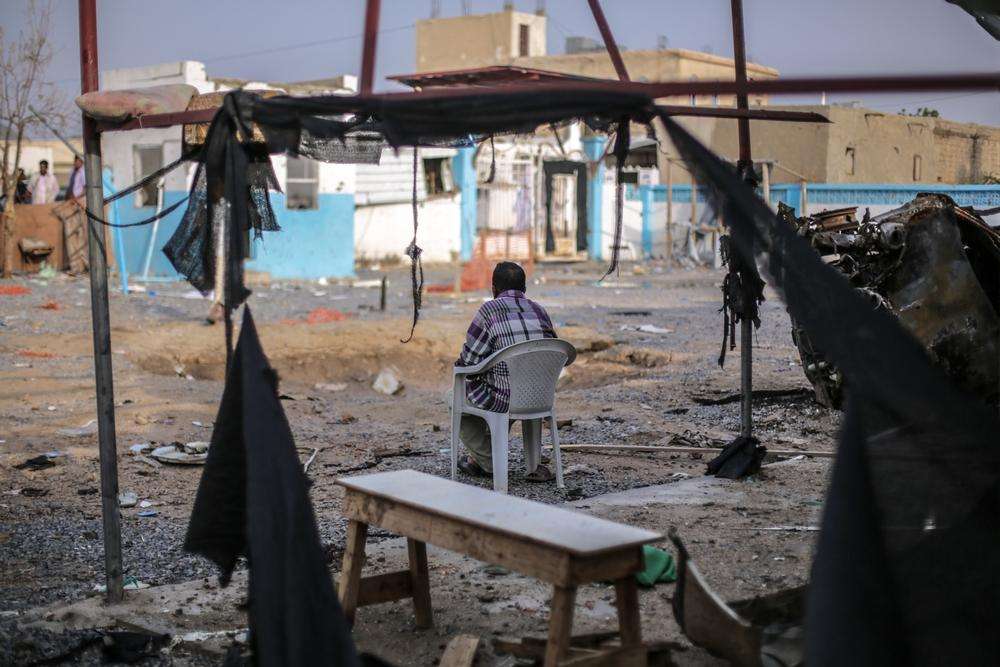MSF today released detailed documentation of two attacks on medical facilities in Yemen. The release comes ahead of the United Nations Security Council closed session on the protection of medical mission. Among other things, these documents, and the incidents that launched them, point to the need for member states to push for concrete measures to protect access to medical care in conflict zones.
After conducting internal investigations, Doctors Without Borders/Médecins Sans Frontières (MSF) is releasing two reports detailing separate attacks on medical facilities run by or supported by MSF in Yemen. Together, the two attacks resulted in the death of 20 people, most of them patients, and wounded 32 others.
Both attacks were acknowledged by the Saudi-led coalition (SLC) that is fighting in Yemen. The first hit an MSF clinic in Taiz on December 2, 2015. The second struck a hospital in Abs, a Hajjah Governorate, on August 15, 2016.
The reports detail the actions taken before, during, and immediately after the airstrikes. MSF is engaged with the military leadership of the SLC. These attacks raised a host of serious concerns and MSF calls upon the UN Security Council to address the all-too-present threat on medical facilities in areas of conflict.
Beyond the immediate loss of life and destruction caused by the bombings, the attacks led to a suspension of activities that left an already vulnerable population without access to health care. As a consequence of the bombing of the Abs hospital facility, MSF withdrew from six hospitals in northern Yemen.
While there are significant differences in the circumstances surrounding each incident, in both cases, the bombings hit fully functioning health facilities and the protected nature of the medical mission was not respected. The internal investigations of the Abs and Taiz incidents also conclude that the neutrality and impartiality of the facilities had not been compromised before the attacks and therefore there was no legitimate reason to attack them.
The details of the incidents documented in these two reports are unambiguous indicators of how war is being waged in Yemen, where there is an utter disregard for civilian life and access to medical aid by all warring parties.
UN Security Council (UNSC) resolution 2286, passed last May, condemned attacks on medical facilities in conflict situations and demanded that all parties involved in armed conflict comply fully with their obligations under international law. However, there have been no concrete and visible steps made toward the underlying goal of civilian safety.
MSF urges UNSC members to take bold and practical steps to ensure that 2016 is the last year that hospitals are bombed repeatedly while the world watches in silence. MSF reiterates its call for all warring parties to uphold the principles of humanitarian law, which protect civilians as well as medical facilities, patients and staff.
Click here for Taiz incident report
Click here for Abs incident report
MSF first opened aid projects in Yemen in 1994. With the escalation of conflict in early 2015, which caused a dramatic increase for humanitarian and medical needs, MSF scaled up the response in the country. MSF’s operations in Yemen are presently the organization's third-largest aid project worldwide.
Before August 15, 2016, MSF worked in 11 hospitals and health centers in Yemen and provided support to another 18 hospitals or health centers in eight governorates [Taiz, Aden, Al-Dhale, Saada, Amran, Hajjah, Ibb and Sanaa], with more than 2,000 MSF staff in the country, including 90 international staff.





